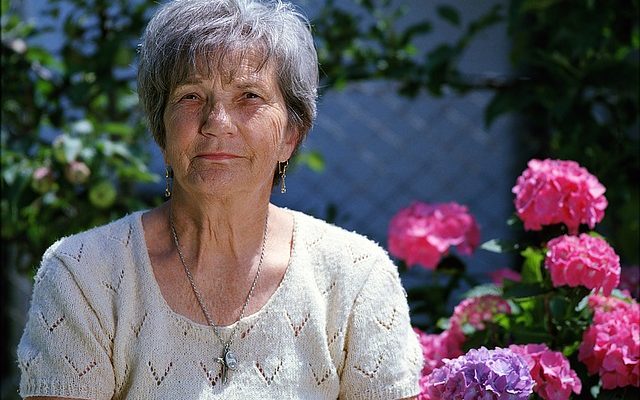The 7 Most Common Health Concerns Among Seniors and Tips for Managing Them

As you age, one of your top priorities should be staying healthy. But as the years pass, this goal can become more difficult to achieve. This is because your risk of developing certain illnesses will increase as you get older.
These disorders include specific health issues and geriatric syndromes – conditions that are typical of or usually come with aging.
Table of Contents
Staying Healthy in Your Senior Years
If you are in your golden years, knowing the usual health issues that will affect your age group will go a long way in reducing your risks for these conditions. It is also crucial that you work with medical and health services providers to minimize the likelihood of developing these ailments.
Below are the common health concerns among seniors and tips for managing the symptoms and reducing your risks of getting them:
1. High Cholesterol
High cholesterol or hypercholesterolemia is highly prevalent in seniors due to its link with environmental and genetic factors. It is also a comorbid health issue since it occurs or is a symptom that comes with another disorder.
When the body has too many bad fats or low-density lipoprotein cholesterol (LDL), your arteries will get clogged which can cause different types of cardiovascular diseases including hypertension, atherosclerosis, and stroke.
You can manage and even avoid having high cholesterol levels by:
- Working out or engaging in physical activities or sports regularly
- Maintaining a healthy weight
- Eliminating saturated and trans fats from your diet
- Lowering your alcohol consumption
- Quitting smoking
- Increasing your intake of healthy fats and fiber
2. High Blood Pressure or Hypertension
Hypertension is one of the most common health issues affecting seniors; it is one of the scariest as well. This is because high blood pressure has no symptoms. Failure to manage or lower it can damage your blood vessels and increase the risk of serious and potentially fatal conditions like stroke and heart attack.
One possible cause of high blood pressure in seniors is that arteries naturally thicken as one age. Because of this, the heart has to work harder to pump the blood where it needs to go.
Other chronic conditions such as diabetes, obesity, kidney disease, and high cholesterol can cause high blood pressure among the elderly as well.
To manage high blood pressure and lower it:
- Check your blood pressure or have it checked periodically to monitor progress or detect pre-hypertension
- Exercise regularly
- Have a healthy diet
- Maintain the right weight
- Avoid stress
- Limit salt and alcohol intake
3. Diabetes
Diabetes pertains to the high level of glucose in the blood. This happens when the body does not make enough insulin. As a result, glucose does not get moved into the body cells and instead builds up in the blood causing high blood sugar.
High blood sugar levels have been associated with a variety of health issues which include:
- Vascular diseases including hypertension and stroke
- Blindness or other visual problems
- Kidney disease
- Nerve problems
To prevent or manage diabetes:
- Stay active
- Have a healthy diet
- Check your glucose levels regularly
- Examine your feet every day. Be on the lookout for non-healing cuts or bruises — a common symptom of diabetes
4. Arthritis
Degenerative arthritis or osteoarthritis is the most common form of arthritis that affects seniors. It refers to the inflammation of the joints caused by the breakdown or degeneration of cartilage in the joints. This, in turn, causes swelling and inflammation which lead to pain and stiffness.
Some seniors suffer from unbearable chronic severe arthritis pain that they have no choice but to drastically change their lifestyle.
To manage the symptoms of or prevent arthritis, you have to:
- Work out regularly. Include a range of motion, aerobic and endurance, and strengthening exercises in your regimen.
- Maintain a healthy weight
- Avoid activities that can cause joint injuries
5. Chronic Obstructive Pulmonary Disease (COPD)
COPD is a common illness in the senior population and it is a major cause of chronic morbidity and mortality. Its symptoms include a chronic cough and dyspnea. Emphysema and chronic bronchitis are also included under COPD.
This condition is typically accompanied by difficulty breathing, shortness of breath, and chest tightness.
To avoid and manage COPD, you have to:
- Stop smoking
- Avoid second-hand smoke, chemical fumes, smog, and dust
- Undergo the prescribed medical treatment (taking antibiotics, using a bronchodilator, etc.)
- Get flu and pneumococcal vaccines
6. Incontinence and constipation
Frequent urination (or feeling the urge to urinate frequently) and having bowel movement issues can have negative effects on a senior’s quality of life.
Incontinence and constipation often come with aging. However, they may be side effects of other health issues as well. Not having a well-balanced diet can cause these conditions, too.
To avoid or manage these health issues:
- Maintain a healthy weight
- Have a well-balanced diet
- Follow your doctor’s advice regarding your daily water or fluid intake
- Exercise regularly
7. Dementia
Dementia is an all-encompassing medical term used to describe symptoms that affect a person’s memory, a performance of routine activities, and communication skills. Alzheimer’s disease is the most common form of dementia that affects seniors.
Symptoms of Alzheimer’s disease include:
- Cognitive and memory impairment
- Confusion, disorientation
- Depression
- Impaired judgment
- Changes in normal behavior
Certain types of dementia can be treated and are reversible. Unfortunately, most types, including Alzheimer’s, are irreversible and will cause further deterioration over time.
It is best to prevent the onset of dementia. Start by:
- Getting good quality sleep every night
- Staying physically active
- Having a healthy diet
- Maintaining social connections
- Engaging in mentally-stimulating activities (reading, doing crosswords and floor puzzles, playing chess, etc.
If you already have these or other health issues, don’t fret; it doesn’t mean you can no longer enjoy your golden years. By following the above-mentioned management tips and your doctor’s advice, you can still live a happy and healthy life.
About The Author:
Ibrahim Khader founded Angels of Medical Care in 2010. The name “Angels” was chosen because of his belief that nurses are angels of healing and care with the blessings of the creator. The company has flourished and is now one of the best, most renowned home care companies in Dubai.










